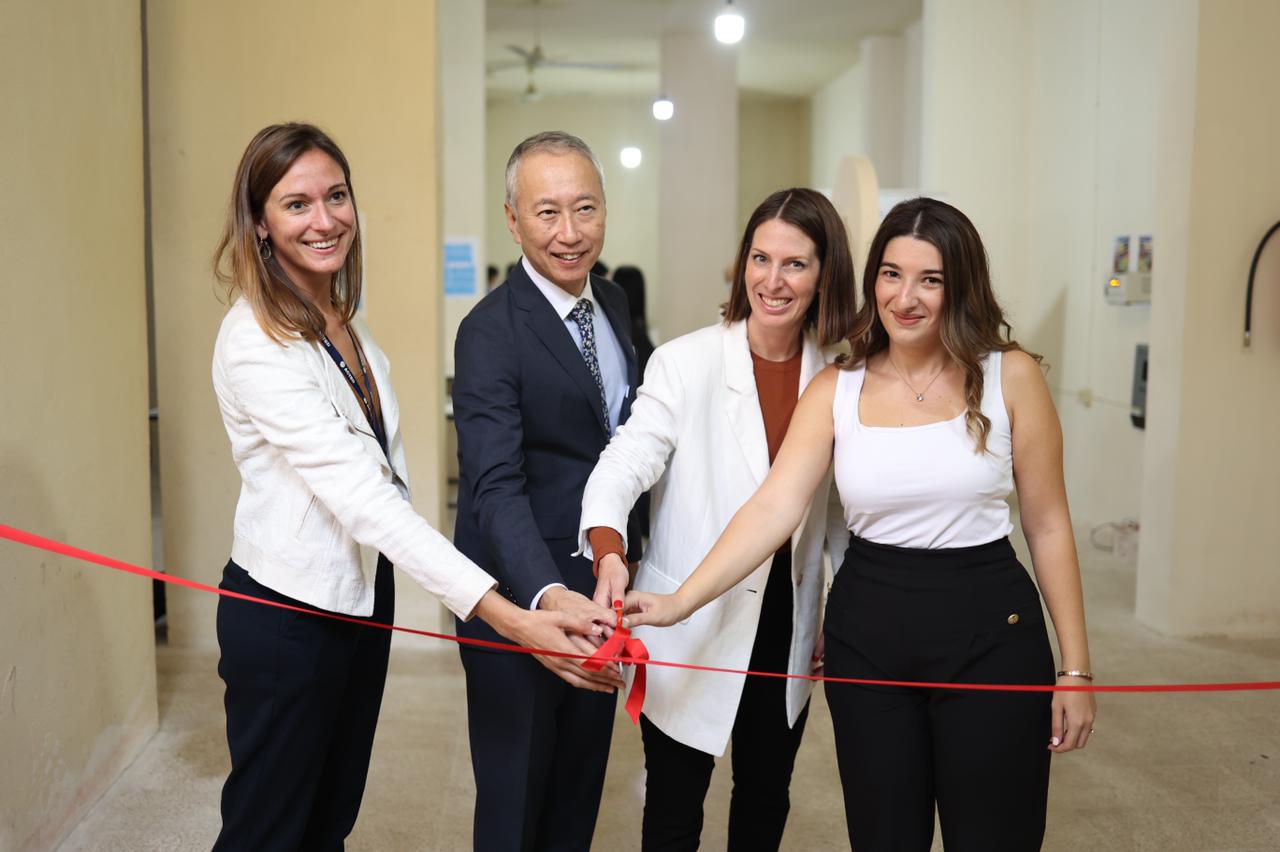The Government of Japan and UN Women launch a women-led social enterprise producing disposable hygienic products in Tripoli, Lebanon
Date:

Beirut, 28 October 2022 – Today, the Ambassador of Japan to Lebanon, H.E. Takeshi Okubo, UN Women, ACTED and social enterprise Roof & Roots, jointly inaugurated a women-led manufacturing unit in Jabal Mohsen, Tripoli which is producing quality, low-cost sanitary pads for women and girls within the area. The manufacturing unit aims to provide a local and sustainable solution for meeting the increased demand for menstrual hygiene products that has been generated by Lebanon’s current crisis, while also promoting the Lebanese economy and women’s engagement in the labour market.
As Lebanon reels from combined crises, families and individuals living in vulnerable conditions have seen their purchasing power decrease, and with that have had to prioritise their expenditures, making difficult decisions between food security, education, health and so on. As a result, the purchase of safe and adequate sanitary pads – items which have exponentially increased in cost since 2019 - is often relegated as secondary to other family necessities. This has resulted in an increase in period poverty, with 66% of the girls living in Lebanon unable to afford to buy sanitary pads and other related products[1], posing detrimental effects to their health and access to public space.
“Japan has always placed women’s empowerment at the core of its assistance for Lebanon. This Japanese funded project to support the establishment of a sanitary pads manufacturing facility in Tripoli, is now running on renewable energy, following which solar panels will be installed at two other facilities. The project not only contributes to the fight against ‘period poverty’ but helps recognize the role of women as vital economic actors in their community by providing them with sustainable employment opportunities. The development of the national industries is key to Lebanon’s recovery and Japan remains committed to support the most deprived communities.”, said H.E. Takeshi Okubo, Ambassador of Japan to Lebanon.
“Today is the result of years of work and investment, in particular from the government of Japan and all of the partners engaged with us. It offers a model for addressing urgent humanitarian needs – in this case sanitary products – that is rooted in the local communities and the local economies,” said Ms. Rachel Dore-Weeks, Country Representative of UN Women in Lebanon.
To address the socio-economic and health risks of period poverty on women and girls in Lebanon, UN Women partnered with NGO ACTED and social enterprise Roof & Roots to establish a sanitary pads production unit in Jabal Mohsen. In its initial phase of work, women have produced, distributed, and sold over 10,000 packages of sanitary pads to women and girls in Jabal Mohsen neighborhoods, while also seeking to raise awareness around menstrual hygiene. Today, sixty women are employed in and around the production facility, producing 30,000 packs of sanitary pads, of which 15,000 will be distributed to women and girls living in vulnerable situations. As a result, 2,400 women and girls will receive a six-month supply of sanitary pads to alleviate the financial burden posed by menstrual products.
“ACTED is proud to incubate a social enterprise for local production in Tripoli, by the women, for the women, at an affordable price. Building on the success of the pilot phase, we are now excited to expand to Saida and Beirut.” said Ms. Gaetane Wicquart, Representative of ACTED in Lebanon.
“When we piloted the project, men were against the participation of women in the menstrual pads production in Tripoli. We do believe that we achieved a theory of change in our community after the positive feedback from our locals, in addition to the availability of a sustainable pad production line”, added Ms. Julia Abbas, Roof & Roots Director.
This work is being scaled up across the country, with new production units set to open in 2023 in Beirut, and Saida with support from the Government of Japan.
[1] Plan International and Female, research study, Period Poverty in Lebanon, August 2021
Media Contact:
Roula Rached, UN Women Lebanon